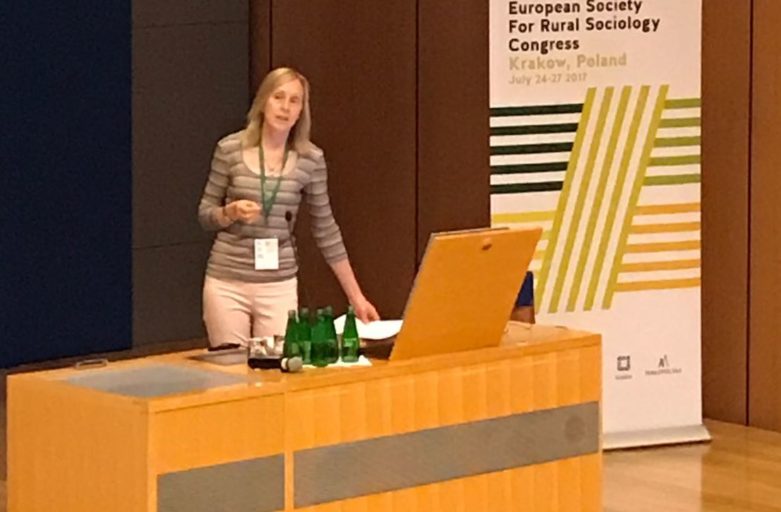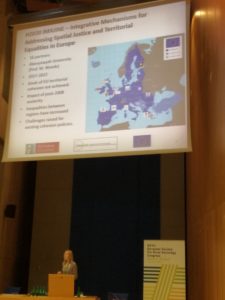The IMAJINE researchers from National University of Ireland, Galway Marie Mahon, John McDonagh, Maura Farrell and Patrick Collins presented a paper entitled “Local spatial planning for rural areas; (en)countering spatial injustice” at the XXVII European Society for Rural Sociology Congress, held in Cracow, Poland between 24th and 27th of July 2017.
The paper examined the processes by which local and regional spatial planning and development promotes certain local level rural service and infrastructure provision over others, and the decisions by local populations to fill gaps in same. Such efforts by local communities are acknowledged as part of the growing reliance on social economy initiatives to address gaps in provision where the state and market will not lead. In this paper, they are investigated as a form of reaction to experiences of spatial injustice whereby certain kinds of spatial development, driven for example by the availability of EU Structural Funds or by other market pressures have been prioritised over others at the institutional level. It uses the example of a particular location on the fringes of Galway City, one which has been impacted by urban spatial planning priorities that have largely defined its role as a dormitory settlement for the city. However, it retains and manifests a strong sense of its rural cultural heritage and identity. In the last number of years, the community has exerted its influence to deliver certain local services and facilities in order to meet the everyday needs of its population and to do so in ways that rhyme with the specific rural and cultural identity of the place; however, in other respects, it has failed to exert change over planning processes which have delivered certain key infrastructure and facilitated certain service provision, but which have also created social and spatial disadvantages for that population.



